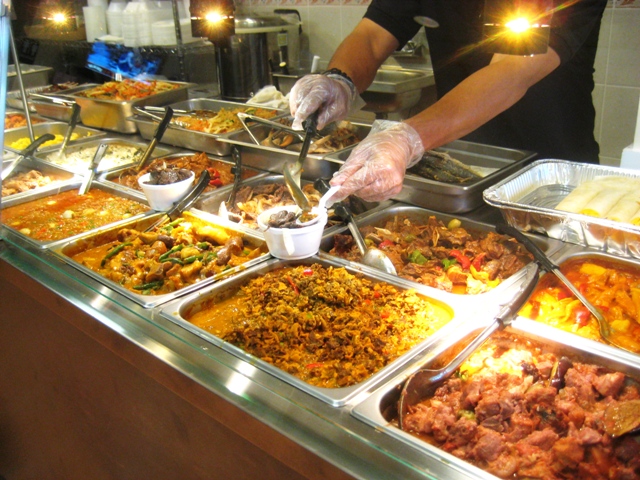When you’re yearning for that Filipino food fix, where do you go? The modern Pilipino fusion joint in the city? The nearest Jollibee for some sweet spaghetti and fried chicken? The turo-turo restaurant for some instant ulam (dishes)? The bakery selling pan de sal, fresh out of the oven? For the fortunate Pilipinos and Fil-Ams, our answer is: home. Nothing beats our favorite Pilipino dishes like the ones created and perfected by our family.

Recipes have been passed down for generations, thus becoming as much a part of holiday gatherings at the attendees at the table. For instance, some dishes that never fail to make it to our holiday and celebration spreads include my mom’s lumpia, my auntie’s fruit salad and my grandma’s (or lola's) cassava cake.
When I was in high school, my mom told me to call my grandma to ask her for her cassava cake recipe. She had made it many times before when she lived with us, but I was too busy with my childhood duties – such as rollerblading, concocting potions with berries and leaves, and making mud traps for the mountain cats that prowled around the backyard at night – to appreciate it. So, I called up my grandma, who had moved back out to California for work, and asked her to divulge her recipe secrets to me. This proved to be a success, as I’m now responsible for making it during holidays, parties, and whenever someone is craving it. Cassava cake is easily my family’s favorite dessert. I have learned to bake two batches, or risk being scolded by everyone (including my younger siblings) for not making enough. When I was in the Philippines last year, I had the chance to make it from scratch; there’s no kitchen workout like grating cassava!
Unfortunately, my personal Pilipino recipe book remains quite bare. When I’m home, I tend to spend most of my time in the kitchen. It is in this most sacred room of my home that I learned my parents' Adobo and Sinigang recipes. But this isn’t enough. When I am finally stateside again, I will resume my place as sous (and sometimes head) chef in the kitchen, picking up more Pilipino dish and dessert recipes. As a young Pilipina, it is my responsibility to preserve the cuisine that helps define our palette and lifestyle. There are so many dishes I have no idea how to make, and it’d be a shame if they were lost. I hope to build up my recipe repertoire; not just with Pilipino dishes, but with all the tricks of the cooking trade that my family continues to employ in the kitchen and during backyard BBQ cookouts.
Next on my list: Pinakbet.
Photo credits: All I Wanna Do is Bake and Ang Sarap





